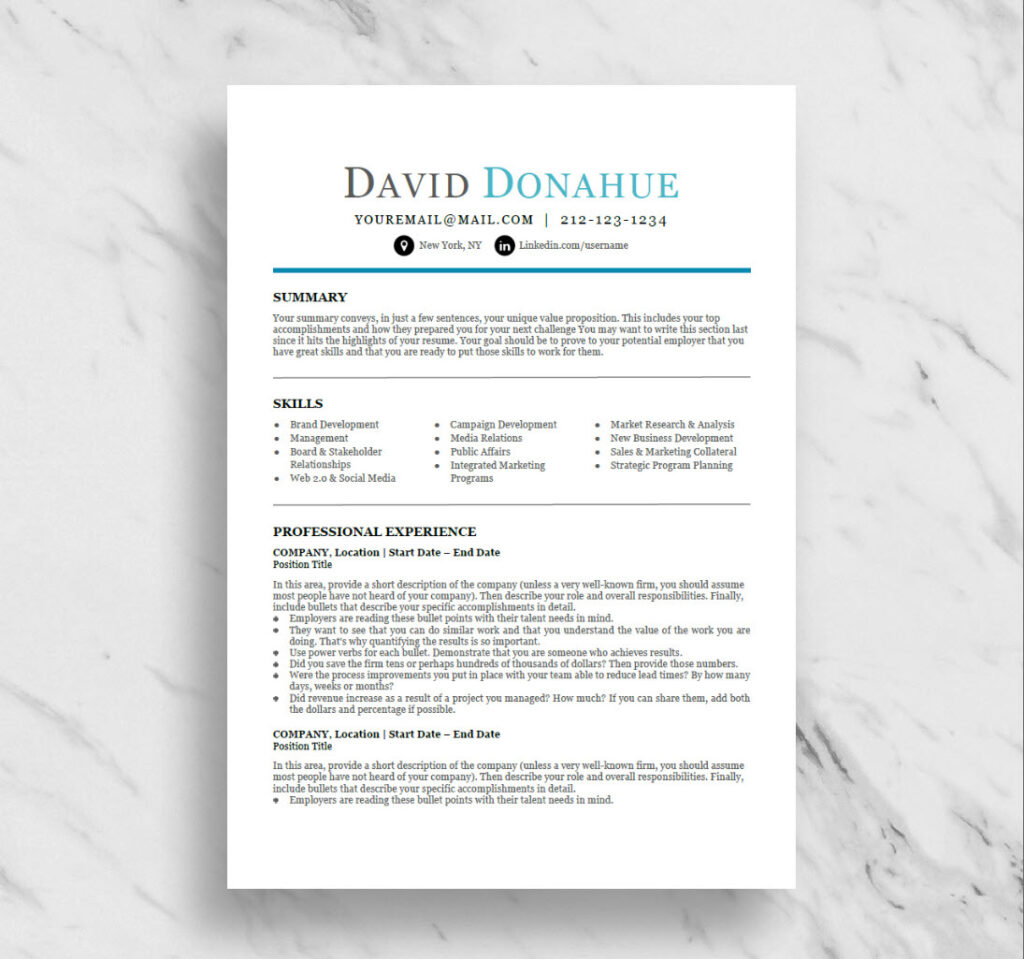
Are you tired of submitting resumes and never hearing back from employers? It may be time to take a closer look at the content and format of your resume. A well-written resume can make all the difference in landing your dream job.
What Makes a Resume Stand Out
A standout resume is one that effectively showcases your skills, experiences, and achievements. It should be easy to read, visually appealing, and tailored to the specific job you are applying for.
To achieve this, follow these best practices:
- Keep it concise: A single page is usually sufficient for most job seekers. Use bullet points and short sentences to make the content easy to scan.
- Customize it: Tailor your resume to each job you apply for by highlighting the most relevant experiences and skills.
- Highlight achievements: Focus on quantifiable achievements, such as increased sales or improved processes, to demonstrate the impact you have made in your previous roles.
- Use keywords: Incorporate keywords from the job description to make sure your resume is picked up by applicant tracking systems (ATS).
- Make it visually appealing: Use clear headings, bullet points, and white space to make your resume easy on the eyes.
Writing an Effective Resume
A typical resume includes the following sections:
- Contact Information: Include your full name, address, phone number, and email address.
- Objective or Summary: A brief statement that summarizes your career goals and highlights your relevant skills and experiences.
- Professional Experience: A chronological list of your past job experiences, including job titles, company names, dates of employment, and key responsibilities and achievements.
- Education: A list of your academic degrees, including the name of the institution, location, and date of graduation.
- Skills: A list of your relevant skills, such as software proficiency or language proficiency.
- Certifications or Licenses: A list of any relevant certifications or licenses you hold.
- Awards or Recognitions: A list of any awards or recognitions you have received in your career.
- Professional Memberships: A list of any professional organizations you belong to and any leadership roles you have held within those organizations.
Tips for Writing Each Section of Your Resume
Contact Information
Include your full name, address, phone number, and email address. Make sure the information is up-to-date and professional.
Objective or Summary
This section should be brief and to-the-point, typically no more than three sentences. Use keywords from the job description to highlight your relevant skills and experiences.
Professional Experience
Use bullet points and short sentences to describe your past job experiences. Focus on your achievements and the impact you made in each role. Use keywords from the job description to make sure your resume is picked up by ATS.
Education
Include your academic degrees, the name of the institution, location, and date of graduation. If you have a high GPA, consider including it.
Skills
Include a list of your relevant skills, such as software proficiency or language proficiency. Consider using keywords from the job description to make sure your resume is picked up by ATS.
Certifications or Licenses
Include a list of any relevant certifications or licenses you hold.
Awards or Recognitions
Include a list of any awards or recognitions you have received.
